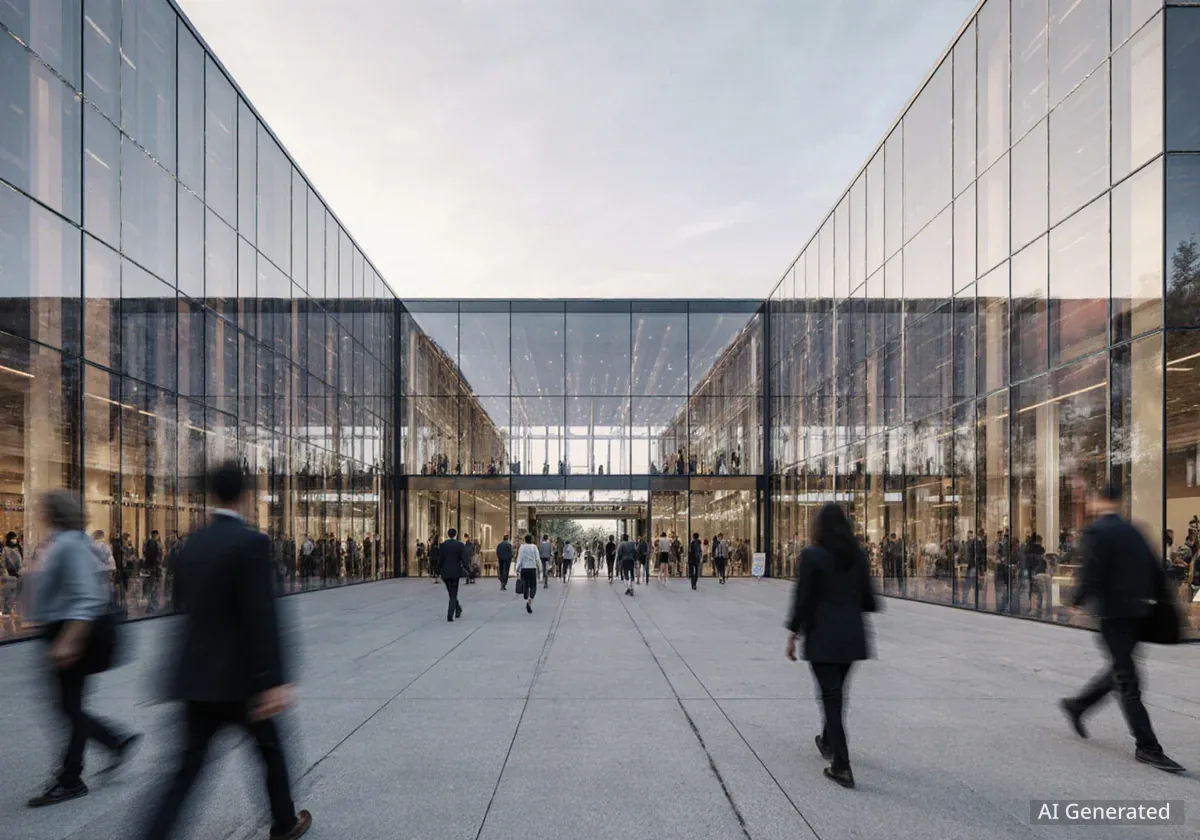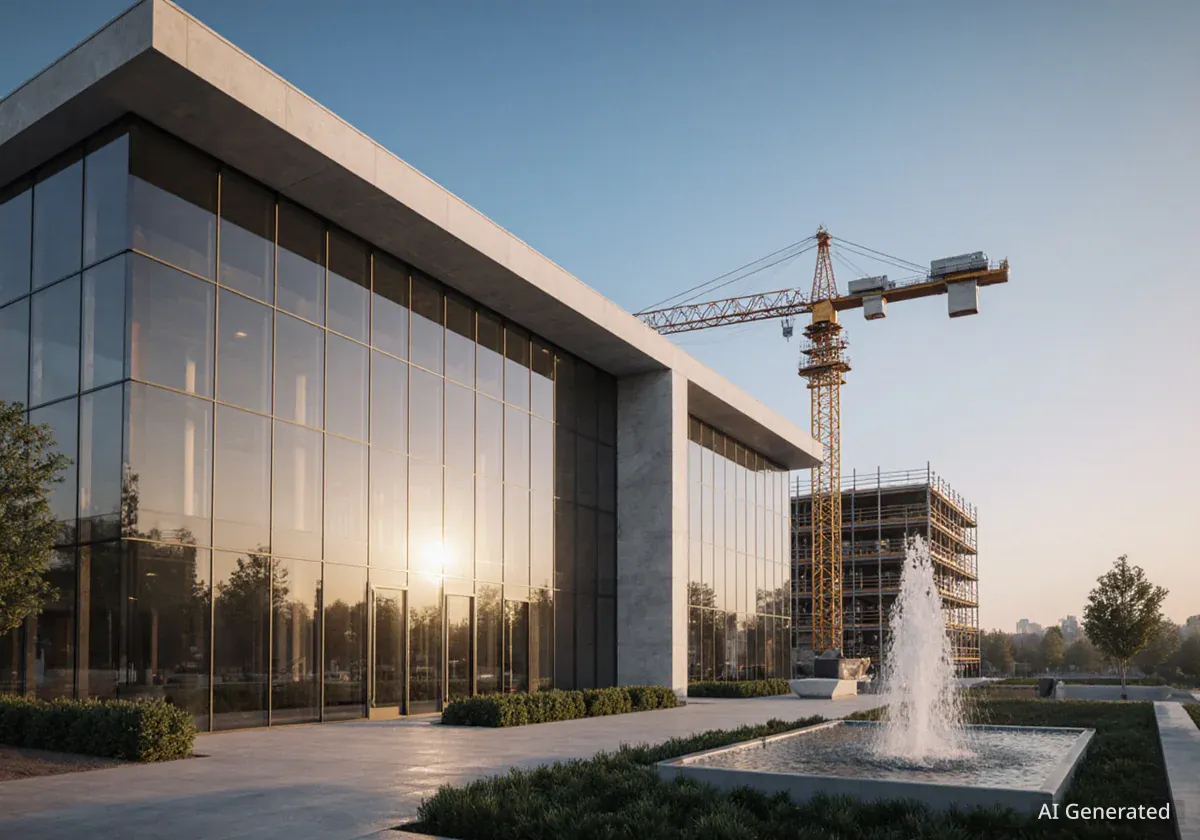South Korean technology company Naver is challenging a court ruling that imposed a 200 million won (approximately $143,000) fine for anti-competitive practices in the online real estate information market. The company has formally appealed the decision, moving the legal dispute to a higher court.
Court records confirmed that Naver filed its appeal on September 24, 2025, just five days after the Seoul Central District Court found the company guilty of abusing its market dominance. The case will now be heard by the Seoul High Court, extending the legal proceedings concerning Naver's business conduct.
Key Takeaways
- Naver was fined 200 million won ($143,000) by the Seoul Central District Court.
- The fine was for abusing its dominant position in the online real estate information sector.
- The company has officially appealed the criminal conviction and the fine.
- The legal case has now been escalated to the Seoul High Court for review.
- The penalty represents the maximum statutory fine permitted under South Korea's Monopoly Regulation and Fair Trade Act.
Naver Challenges Court Ruling on Market Dominance
Naver has initiated the next phase of its legal battle against antitrust allegations. The company's decision to appeal the 200 million won fine signals its firm opposition to the lower court's findings. The appeal was lodged with the Seoul Central District Court and officially transfers jurisdiction of the case to the Seoul High Court.
This move was anticipated by some legal analysts, given the significance of the ruling for Naver's platform business model. The company maintains its position that its actions were competitive rather than monopolistic. The Seoul High Court will now re-examine the evidence and legal arguments presented by both Naver and the prosecution.
The South Korean Judicial Process
In South Korea, an appeal to a high court involves a comprehensive review of the case. The Seoul High Court can re-evaluate both the factual findings and the legal interpretations of the lower district court. This process can involve new arguments and, in some instances, new evidence, making it a critical stage in the legal system.
Background of the Antitrust Allegations
The case originates from actions taken by Naver that regulators and prosecutors argued were designed to stifle competition. The core of the accusation is that Naver used its powerful market position to unfairly disadvantage rivals in the lucrative online property listings market. Prosecutors argued these practices harmed smaller competitors and limited consumer choice.
The initial investigation was conducted by South Korea's Fair Trade Commission (FTC), the country's primary antitrust watchdog. The FTC's findings formed the basis for the criminal charges that were later brought against the company, culminating in the district court's guilty verdict and subsequent fine on September 19, 2025.
The allegations centered on specific contractual terms and platform policies that allegedly forced real estate agencies to exclusively use Naver's platform or face disadvantages. This type of conduct, known as exclusionary practice, is a key focus for competition authorities globally.
Maximum Statutory Penalty
The 200 million won fine is the highest possible penalty for this type of violation under the Monopoly Regulation and Fair Trade Act. The court's decision to impose the maximum amount indicates it viewed the violation as a serious breach of fair competition laws.
The Significance of the Fine and Ruling
While the monetary value of the 200 million won fine is relatively small for a corporation of Naver's size, the legal precedent is far more significant. The guilty verdict represents a formal declaration by a court that the company engaged in illegal anti-competitive behavior. This could expose Naver to further scrutiny and potential civil lawsuits from competitors who claim to have been harmed.
The ruling also reflects a broader global trend of increased regulatory oversight of major technology platforms. Governments and regulatory bodies worldwide are examining the market power of tech giants and their impact on competition. This case is a prominent example of that trend within South Korea.
A successful appeal would be a major victory for Naver, validating its business practices. However, if the Seoul High Court upholds the conviction, it could force the company to alter its operational strategies and its relationships with third-party service providers on its platform.
What Happens Next in the Legal Process
With the appeal now filed, the Seoul High Court will schedule hearings to begin its review. The legal teams for both Naver and the prosecution will prepare to present their cases again. The high court's process is typically thorough, and a decision is not expected for several months.
Key aspects the high court will likely consider include:
- Defining the Market: A crucial point of contention will be how the "online real estate information market" is defined and whether Naver truly holds a dominant position within it.
- Intent and Effect: The court will analyze whether Naver's actions were intentionally designed to exclude competitors and what the actual effect on the market was.
- Pro-Competitive Justifications: Naver's defense will likely argue that its policies were intended to improve service quality for consumers, a common pro-competitive defense in antitrust cases.
Should the Seoul High Court uphold the ruling, Naver would have one final avenue of appeal: the Supreme Court of South Korea. However, the Supreme Court generally only reviews cases based on errors of legal interpretation, not factual disputes, making the high court's decision a pivotal moment in this ongoing legal saga.





